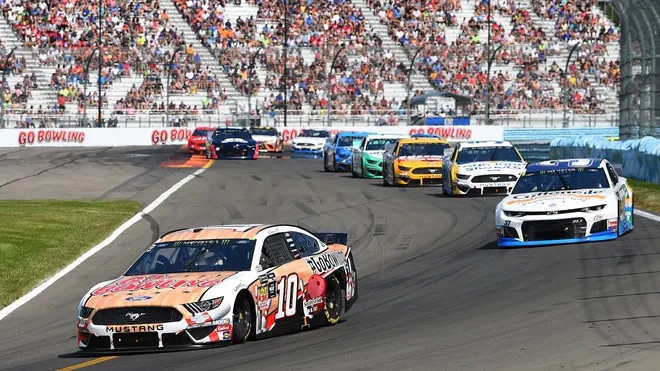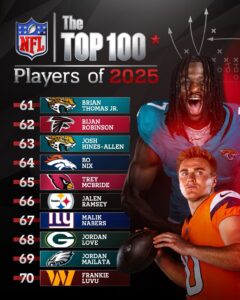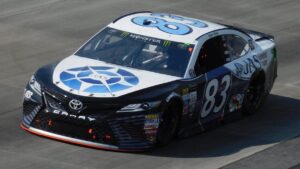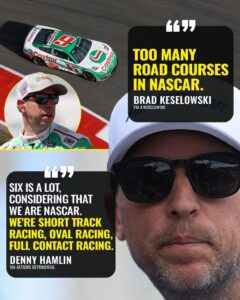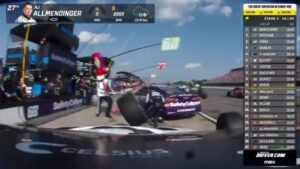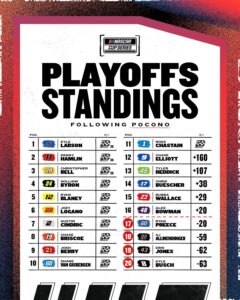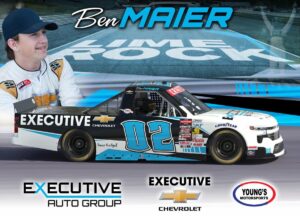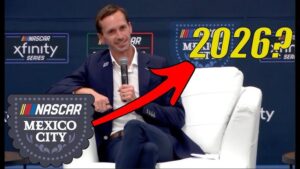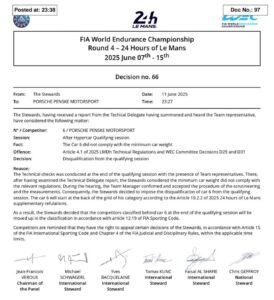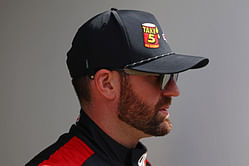The legal battle between NASCAR and two of its teams, 23XI Racing and Front Row Motorsports (FRM), has escalated as the teams filed a brief opposing NASCAR’s motion to dismiss their antitrust claims. In their filing, 23XI and FRM reiterated that NASCAR’s control over racetracks, sanction agreements, and the Next Gen car supplier and costs effectively gives the sanctioning body monopolistic control over the market—making it virtually impossible for a team to pivot to another racing series.
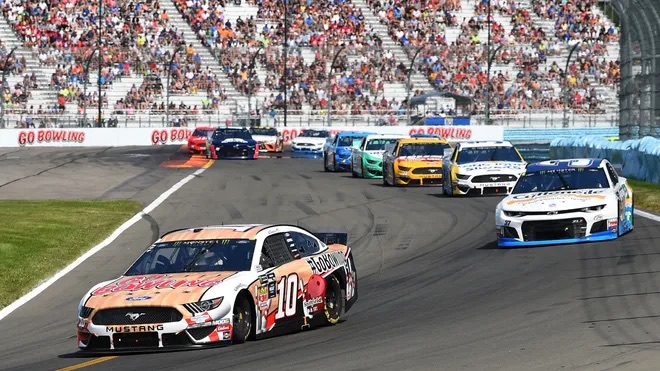
The Crux of the Teams’ Argument
23XI and FRM contend that NASCAR’s dominance in both competition and business structure creates a stranglehold over teams, limiting their options and financial independence. At the heart of their claim are two key points:
1. Control Over Tracks: NASCAR owns or directly influences most tracks on the Cup Series schedule. Additionally, sanctioning agreements with independently owned tracks prohibit them from hosting competing stock car events outside of NASCAR’s jurisdiction. The teams argue that this prevents the creation of alternative stock car racing series, effectively stifling competition.
2. Control Over the Next Gen Car: NASCAR mandates the use of the Next Gen car, which has standardized parts provided by single-source suppliers chosen by NASCAR. Teams have no say in these decisions, and costs are locked in at rates that, according to 23XI and FRM, make it difficult for smaller or mid-sized teams to operate profitably.
The filing further argues that NASCAR’s monopolistic structure ensures that a team cannot simply shift its operations to another form of racing, such as IndyCar or IMSA, because their investments, equipment, and sponsorship agreements are specifically tied to NASCAR’s ecosystem.
“NASCAR’s control over the market is all-encompassing,” the brief states. “Teams are locked into NASCAR’s terms with no viable alternative.”
NASCAR’s Motion to Dismiss
In its motion to dismiss, NASCAR has argued that its structure is essential to the sport’s success and that its rules and agreements exist to ensure fair competition and financial viability for the entire industry. NASCAR claims that sanctioning agreements and single-source suppliers are necessary to maintain uniformity, safety, and cost control in the Cup Series.
The sanctioning body also pushed back against accusations of monopolistic practices, maintaining that teams willingly participate in NASCAR’s ecosystem and benefit from its structure through shared revenues, increased sponsorship opportunities, and growing fan engagement.
Implications for the Sport
The ongoing legal battle raises questions about the balance of power in NASCAR and the long-term viability of its current team model. For years, teams have expressed concerns about the rising costs of competing in the sport and the lack of a revenue-sharing model similar to other professional leagues like the NFL or MLB.
By challenging NASCAR’s control, 23XI and FRM are forcing a broader discussion about fairness, transparency, and sustainability in the sport. If the court finds merit in their claims, it could lead to significant changes in NASCAR’s business practices, including adjustments to sanctioning agreements, supplier contracts, and potentially the introduction of competing stock car series.
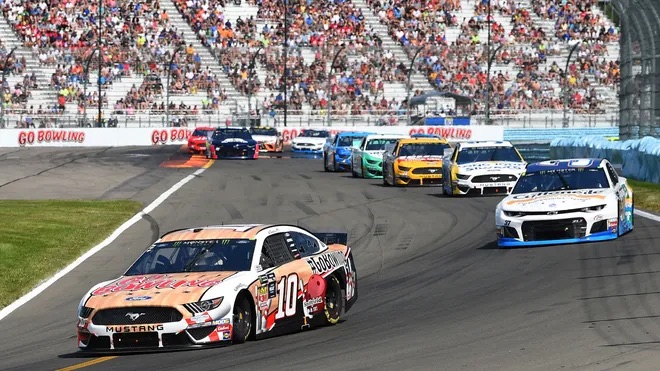
What’s Next?
With 23XI Racing and Front Row Motorsports refusing to back down, the case appears poised for further legal scrutiny. The outcome could have far-reaching implications for NASCAR’s teams, suppliers, and even its fan base.
While NASCAR continues to emphasize that its current model promotes competition and keeps costs manageable, the teams’ opposition highlights growing tensions over the financial burdens and lack of alternatives available to them.
As the legal process unfolds, all eyes will be on whether the courts agree with the teams’ claims of monopolistic control—or if NASCAR’s dominance will continue, unchallenged.
